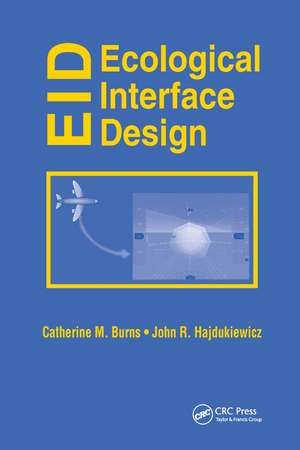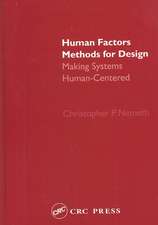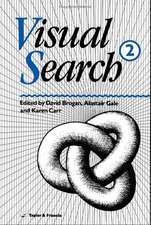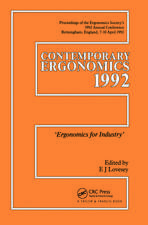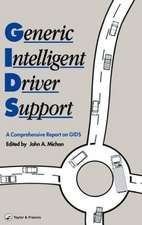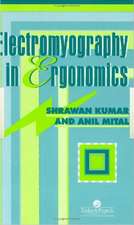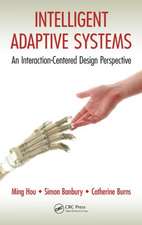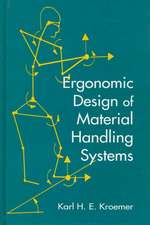Ecological Interface Design
Autor Catherine M. Burns, John Hajdukiewiczen Limba Engleză Paperback – 19 iun 2019
The book then incorporates case studies that further emphasize techniques and results. Each example exemplifies a solution to a certain part of the EID puzzle. Some of the examples demonstrate the analysis phase, while others apply more scrutiny to graphical design. Each is unique, allowing allowing you to use them in the development of your own designs.
The volume concludes with an analysis that connects ecological interface design with other common interface design methods, enabling you to better understand how to combine approaches in the creation of design solutions.
| Toate formatele și edițiile | Preț | Express |
|---|---|---|
| Paperback (1) | 489.26 lei 6-8 săpt. | |
| CRC Press – 19 iun 2019 | 489.26 lei 6-8 săpt. | |
| Hardback (1) | 794.51 lei 6-8 săpt. | |
| CRC Press – 25 iun 2004 | 794.51 lei 6-8 săpt. |
Preț: 489.26 lei
Preț vechi: 575.60 lei
-15% Nou
Puncte Express: 734
Preț estimativ în valută:
93.62€ • 100.11$ • 78.06£
93.62€ • 100.11$ • 78.06£
Carte tipărită la comandă
Livrare economică 17 aprilie-01 mai
Preluare comenzi: 021 569.72.76
Specificații
ISBN-13: 9780367394141
ISBN-10: 0367394146
Pagini: 344
Dimensiuni: 156 x 234 x 25 mm
Greutate: 0.45 kg
Ediția:1
Editura: CRC Press
Colecția CRC Press
ISBN-10: 0367394146
Pagini: 344
Dimensiuni: 156 x 234 x 25 mm
Greutate: 0.45 kg
Ediția:1
Editura: CRC Press
Colecția CRC Press
Public țintă
Academic and Professional Practice & DevelopmentCuprins
Introduction and overview. Work domain analysis. The language of interface design. Using a work domain model in design. Transportation systems. Process control systems. Telecommunications systems. Medical systems. Social systems. Using EID with other methods. Conclusion.
Notă biografică
Burns, Catherine M.; Hajdukiewicz, John
Descriere
This volume delivers the techniques and examples that provide readers with a foundation to succeed in designing advanced display graphics. It exposes the analytical methods behind designs, common graphical forms, and how these methods and forms create a complete design. It also includes case studies that exemplify solutions to specific parts of the EID puzzle. Each is unique, allowing readers to apply them in the development of their own designs. The volume concludes with an analysis that connects ecological interface design with other common styles, enabling you to better understand how to combine interface design methods in the creation of design solutions.
